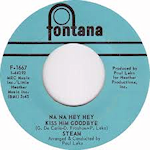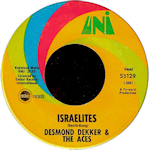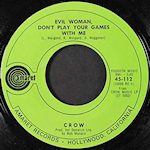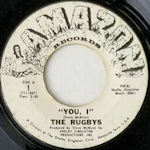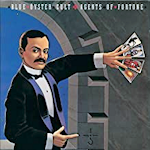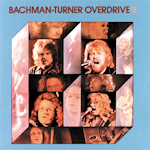Grunge is a genre of rock music that emerged in the Pacific Northwest region of the United States, primarily in Seattle, in the mid-1980s. Grunge music is characterized by its heavy, distorted guitar sound, often with a focus on rhythm rather than melody. The lyrics often deal with themes of social alienation, angst, and apathy.
The term "grunge" originally referred to the unkempt appearance of musicians associated with the genre, who often wore flannel shirts, ripped jeans, and combat boots. Grunge fuses elements of punk rock (specifically American hardcore punk such as Black Flag) and heavy metal (especially traditional, earlier heavy metal groups such as Black Sabbath).
Key bands associated with the grunge movement include:
- Nirvana: Nirvana is perhaps the most iconic grunge band, led by singer and guitarist Kurt Cobain. Their breakthrough album, "Nevermind" (1991), featuring hits like "Smells Like Teen Spirit," played a pivotal role in bringing grunge into the mainstream and is considered one of the greatest albums of all time.
- Pearl Jam: Formed in Seattle in 1990, Pearl Jam rose to fame with their debut album, "Ten" (1991). Led by Eddie Vedder, their music blended grunge with a more classic rock sound. Pearl Jam became one of the most enduring and commercially successful bands of the era.
- Soundgarden: Known for their heavy and intricate sound, Soundgarden was a key player in the early grunge scene. Their album "Superunknown" (1994) is often regarded as one of the defining works of the genre. Chris Cornell, the band's vocalist, had a significant impact on the grunge movement.
- Alice in Chains: Combining grunge with elements of metal, Alice in Chains achieved success with albums like "Facelift" (1990) and "Dirt" (1992). Their harmonized vocals between Layne Staley and Jerry Cantrell set them apart, contributing to the distinctive grunge sound.
- Stone Temple Pilots: Though sometimes associated more with the broader alternative rock scene, Stone Temple Pilots had a significant impact on the grunge movement with their debut album "Core" (1992). Hits like "Plush" and "Creep" helped establish them as major players in the early '90s rock scene.
- Mudhoney: As one of the earliest grunge bands, Mudhoney's raw and energetic sound influenced many of the later bands. Their debut album, "Superfuzz Bigmuff" (1988), is considered a classic of the genre.
- Temple of the Dog: A unique project, Temple of the Dog was a collaboration featuring members of Soundgarden and Pearl Jam. They released a self-titled album in 1991 as a tribute to Andrew Wood, the late lead singer of Mother Love Bone.
Grunge music gained national and international attention in the early 1990s, with the success of Nirvana's album "Nevermind" (1991) and its hit single "Smells Like Teen Spirit." The commercial success of these bands led to a wider interest in grunge music and the Pacific Northwest music scene in general.
The popularity of grunge music had a significant impact on popular culture, with many people adopting the grunge aesthetic and style of dress. However, as the genre gained more mainstream success, it also faced criticism and backlash for its perceived nihilistic and apathetic themes.
The popularity of grunge also had a significant impact on the recording industry and the hugely popular 1980s bands the industry all but abandoned in order to embrace the emerging new genre.
Despite its relatively short-lived mainstream popularity, grunge music continues to be influential in modern rock music, with many contemporary bands citing grunge as a major influence on their sound and style.
